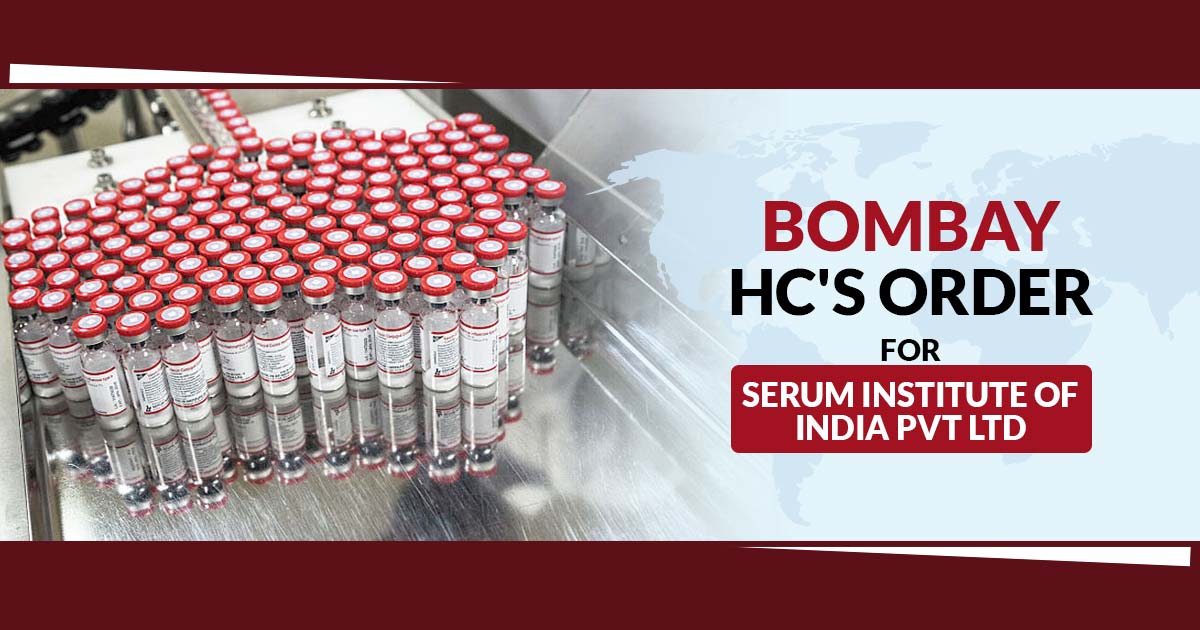
A petition that the Serum Institute of India Pvt Ltd had filed that contested a 2016 amendment to the income tax act has been dismissed by the Bombay High Court.
The bench of Justice K. R. Shriram and Justice Neela Gokhale witnessed that the revision of section 2(24) by the insertion of the impugned sub-clause that comprises distinct subsidies and concessions merely shows that the effectively established jurisprudential path which assures that the laws of income tax shall remain attuned to the economic realities and carried on to serve as an important cog in the countries fiscal machinery.
The legislature must ensure that the taxation policy shows a balance between incentivizing economic activity and ensuring the equitable distribution of fiscal resources.
The taxpayer/applicant, Serum Institute, is a biotechnology company manufacturing drugs and vaccines. The taxpayer secures a manufacturing plant in Hadapsar, Pune. Under section 10AA of the Income Tax Act, 1961 the applicant’s units in the Hadapsar area are eligible for deduction.
The petitioner also commissioned another manufacturing facility in the Special Economic Zone (SEZ) located at Manjari, Pune, which began production in FY 2019-20.
A 2016 amendment to section 2(24) is been challenged by the applicant via the insertion of sub-clause (xviii) under the Finance Act, 2015, which is concerned with income. The challenge was to incorporate subsidies, grants, waivers, concessions, reimbursements by the Centre or states, or incentives in cash or kind, as “income”.
The applicant states that the sub-clause is opposite to the scheme of the income tax act which is to impose the tax on the income. The term income stipulated under clause (24) of Section 2 of the Act read with Section 4 shows that the income is any monetary return counted in. For the capital subsidies, no monetary return counted in. Only tax shall be levied on real income.
The council argued that subsidies, exemptions, and waivers are incentives for drawing the industries to invest in Maharashtra. Such incentives promote capital investments, that form jobs and nurture the economy.
However the accurate nature of subsidy is to assist or supplement the capital invested via the industries, hence the capital receipt shall be now asked to be treated as income under the sub-clause.
Read Also: Investing in India Will Not Be Affected by Any Amendment Made to I-T Section 54
The court emphasized the importance of deferring to the legislature’s expertise in matters of economic policy. It acknowledged the specialized knowledge of those handling economic issues, suggesting minimal interference unless the legislation’s stance becomes entirely untenable. In this instance, the petitioner’s case didn’t fit this exceptional criterion.
Important: GST on Medicines and Medical Supplies in India
Regarding the contested subclause, the court found no evident bias or significant inequality leading to explicit or hostile discrimination.
The court reaffirmed that the legislature stands as the most adept body for deliberating fiscal concerns and crafting policies to tackle them. Whether introducing new liabilities, exempting existing ones, instituting deductions, or subjecting current deductions to fresh regulatory frameworks, the legislature’s authority in framing laws for addressing specific fiscal gaps remains crucial, as inherent in tax statutes.
| Case Title | Serum Institute of India Private Limited Vs Union of India |
| Citation | Writ Petition No.3735 of 2021 |
| Date | 04.12.2023 |
| Petitioner | Mr Arvind Datar, Mr Chinmoy Khadalkar, Ms Salonee Paranjape, Mr P.C. Tripathi, Mr Atul K. Jasani |
| Respondents | Mr Devang Vyas, Mr Suresh Kumar, Ms Anusha P. Amin, Mr Sheelang Shah, Ms Vaibhavi Choudhary, Ms Mohini Choughule |
| Bombay High Court | Read Order |










Can you please update me whether Serum has further contested before SC?